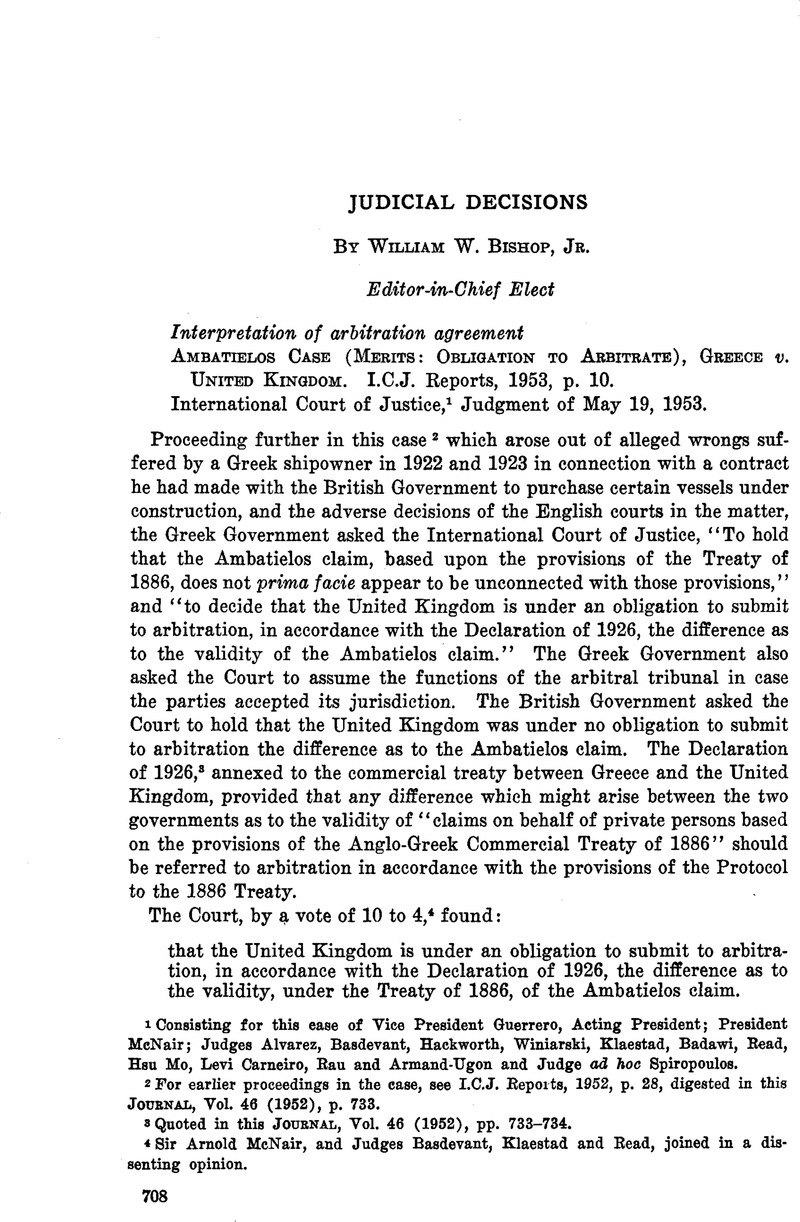No CrossRef data available.
Article contents
Ambatielos Case (Merits: Obligation to Arbitrate), Greece v. United Kingdom. I.C.J. Reports, 1953, p. 10
Published online by Cambridge University Press: 20 April 2017
Abstract

- Type
- Judicial Decisions
- Information
- Copyright
- Copyright © American Society of International Law 1953
References
1 Consisting for this ease of Vice President Guerrero, Acting President; President McNair; Judges Alvarez, Basdevant, Haekworth, Winiarski, Klaestad, Badawi, Read, Hsu Mo, Levi Carneiro, Rau and Armand-Ugon and Judge ad hoc Spiropoulos.
2 For earlier proceedings in the case, see I.C.J. Reports, 1952, p. 28, digested in this Journal, Vol. 46 (1952), p. 733.
3 Quoted in this Journal, Vol. 46 (1952), pp. 733–734.
4 Sir Arnold McNair, and Judges Basdevant, Klaestad and Read, joined in a dissenting opinion.
5 The Court quoted the provision of the 1886 treaty that subjects of each Party in the territories of the other Party “shall have free access to the Courts of Justice for the prosecution and defense of their rights, without other conditions, restrictions, or taxes beyond those imposed on native subjects.” It also quoted the stipulation in the 1886 treaty that “in all matters relating to commerce and navigation, any privilege, power or immunity” granted to third states should be extended to the other Party on an unconditional most-favored-nation basis. The Greek Government relied on certain British treaties of 1660 and 1670 with Denmark, 1654 and 1661 with Sweden, and 1911 with Bolivia, all dealing with the granting of justice to nationals of the other party to the treaty. The British Government denied the applicability of these treaty provisions to the case at hand, and argued that any claim of the Greek Government would be one for denial of justice under ordinary rules of international law rather than one arising in connection with the 1886 treaty, and thus not falling within the commitment to arbitrate.




